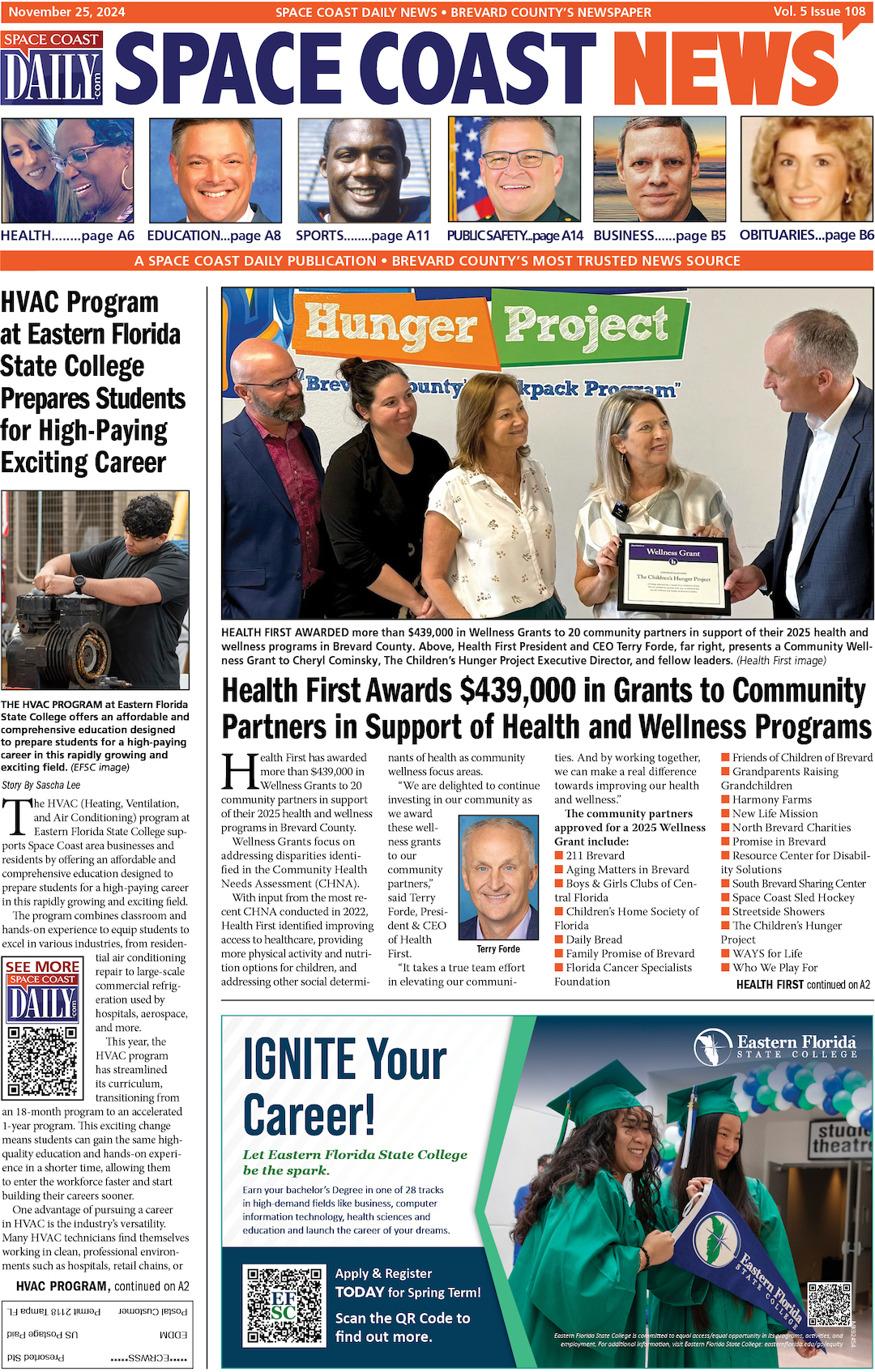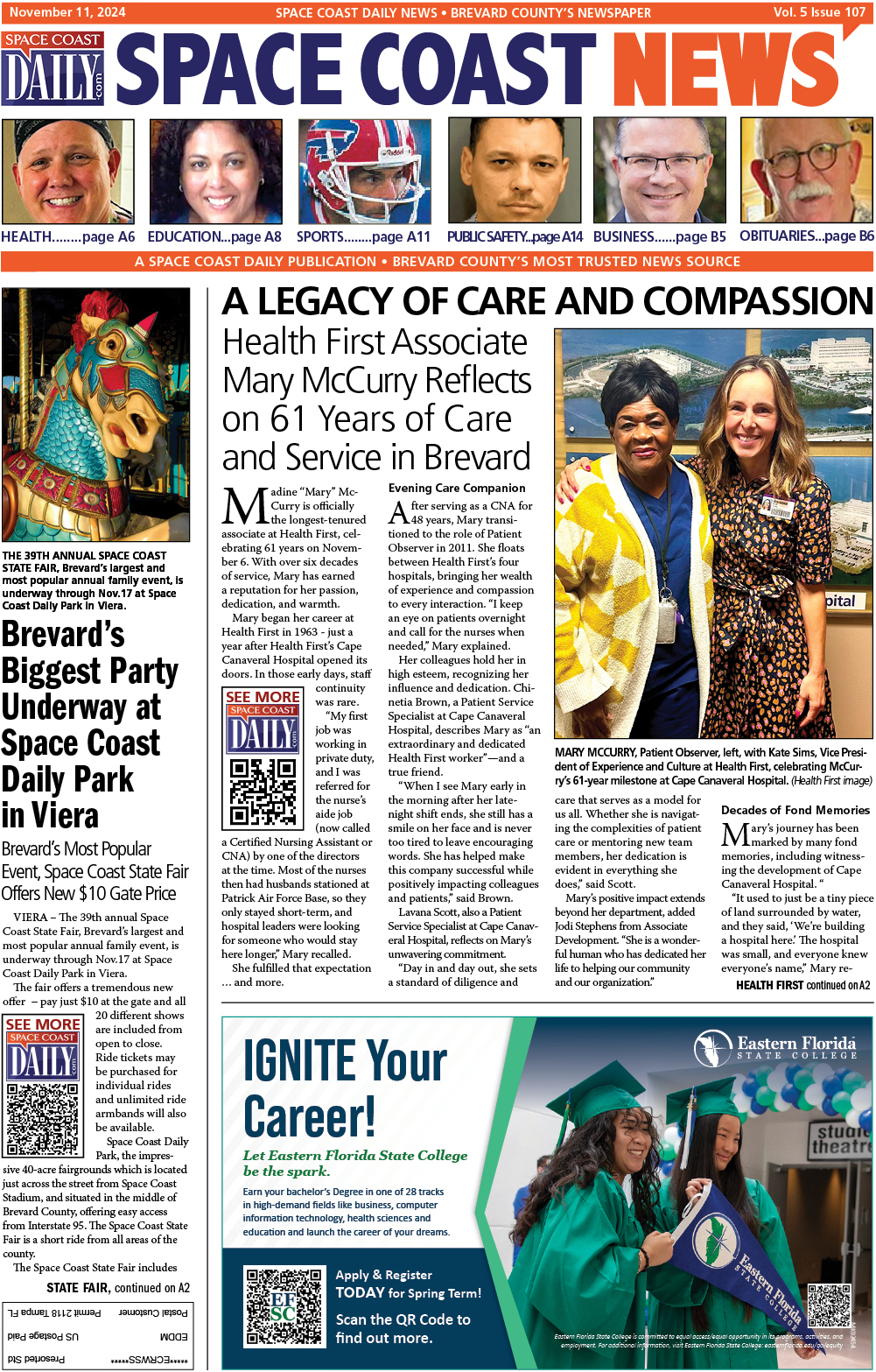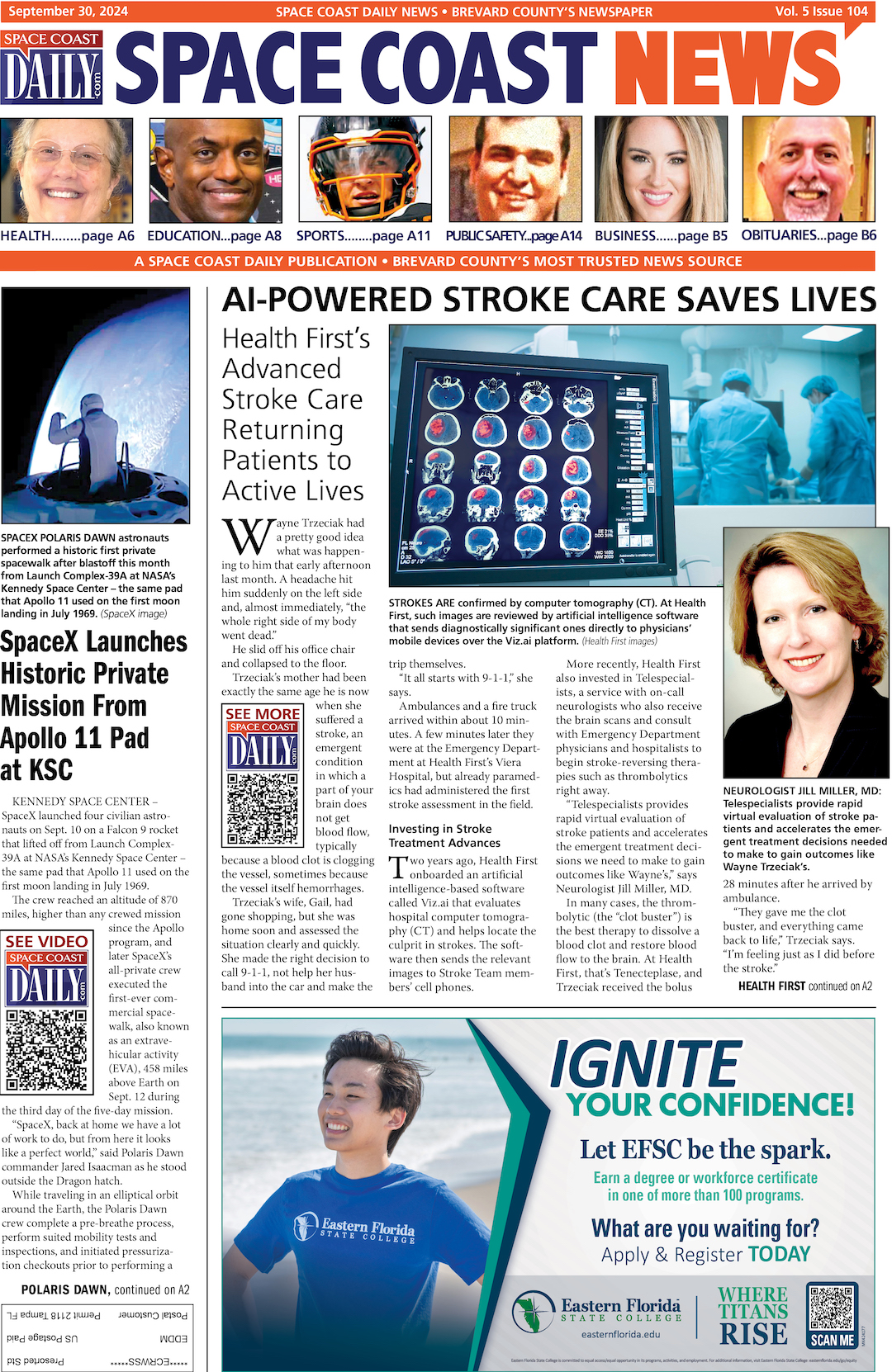HEALTH FIRST CARDIOLOGIST: Better Diagnostic Data Leads to Pacemaker, Promise of Return to Sports
By Space Coast Daily // June 26, 2024
artificial intelligence-enhanced implanted monitor picked up disruption of electrical signals of the heart
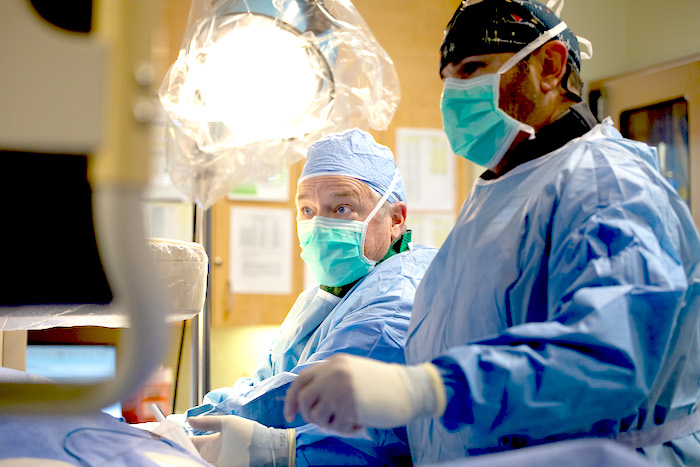
One year ago Rick Dean had an AI-enabled BIOMONITOR IV implanted. It caught his debilitating heart block.
BREVARD COUNTY, FLORIDA – Rick Dean of Merritt Island does more than exercise. He competes. He has finished an Ironman triathlon. He surfs, windsurfs and paddleboards. Now in his 70s, he hits the gym regularly, and he bicycles – a lot.
But a couple years ago, his heart was slowing him down. It seemed to be skipping beats while exercising. His echocardiogram was normal.
Exactly one year ago, Health First Cardiologist Kevin R. Campbell, MD, FACC implanted a new artificial intelligence-enhanced implantable cardiac monitor – the BIOMONITOR IV from BIOTRONIK. The device is intended to determine if a serious heart rhythm abnormality was causing Dean’s symptoms.
“This is a guy who does Ironmans. He’s a triathlete – very, very highly functioning,” says Dr. Campbell.
What the implanted monitor ultimately picked up was a disruption of the electrical signals of the heart commonly called a heart block. On June 18, Dean went to Health First’s Cape Canaveral Hospital to have an Edora 8 DR-T pacemaker implanted.

Determining the Patient’s Diagnosis
The monitor Dean received boasts a reduction in false positive detections 86% while preserving 98% of the true episodes, according to the company.
It produces “some of the best electrograms I’ve seen,” Dr. Campbell says, and “allowed us to determine if the patient is having atrial fibrillation (“afib”) or atrial flutter, or if there was heart block or other more dangerous rhythm disorders, which has a huge impact on the way we care for them.”
His last EKG before the monitor showed the potential for afib, so Dean had been prescribed a blood thinner, but it worried him – a fall from his bicycle could result in tremendous bleeding and prove a catastrophic injury. Dr. Campbell himself wasn’t convinced afib fully explained his symptoms.
Thanks to the monitor, afib was not Dean’s diagnosis. The correct diagnosis was altogether different and indicated the need for a dual-chamber pacemaker. Dean had a particularly high-risk type of heart block called Mobitz type II second-degree atrioventricular block.
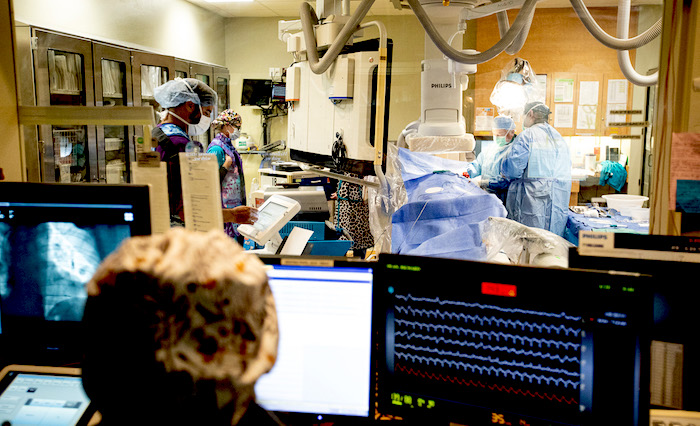
Pacing the Heart
Dean suffers from a not uncommon heart rhythm disorder in which the lower chamber of the heart, the ventricle, which normally follows atrial contraction for that signature buh-bump heartbeat, wasn’t always getting the electrical signal..
“When we see this type of AV block, it lets us know that this patient could really develop complete heart block in the future – which could be life threatening,” Dr. Campbell says. “In almost all cases it’s not reversible, and we implant a pacemaker.”
Dean’s particular diagnosis calls for a device with two leads that can assist pacing the atrium and the ventricle and coordinating their electrical activity.
“He will have a normal heart rhythm. And my hope is he’ll feel a lot better, have more energy, and certainly we know we’ve protected him from complete heart block,” Dr. Campbell says.

‘Cutting-edge Care Close to Home’
The procedure is safe and, in Dean’s case, took about an hour.
“This is what Health First is all about. We want to provide cutting-edge care close to home, and between the Cardiologists, the Cardiac Electrophysiologists and the amazing valve surgeries that my colleague – and not relative – Dr. Matt Campbell is able to do, there’s really nothing that we need to refer out.”
Dean said late this week that he went to the gym the very next day following his implant – “to get in some very lightweight exercise.”
“I can’t lift anything heavier than 10 pounds with my left arm right now, so I’m being careful there.”
He said he went on an electric bike ride Friday.
“Been out and about trying to keep the left shoulder somewhat active and it feels great. No meds needed.”
He plans to return to full activity in about a month. And now, the new pacemaker will collect data about his heart’s rhythm, connected by Bluetooth to a display Dean will keep.
If you’re concerned with your heart rhythm, take our quiz at HF.org/afib. Visit HF.org/news to keep up with the latest at Health First.






